Australia's youth justice scandal stirs race controversy
- Published
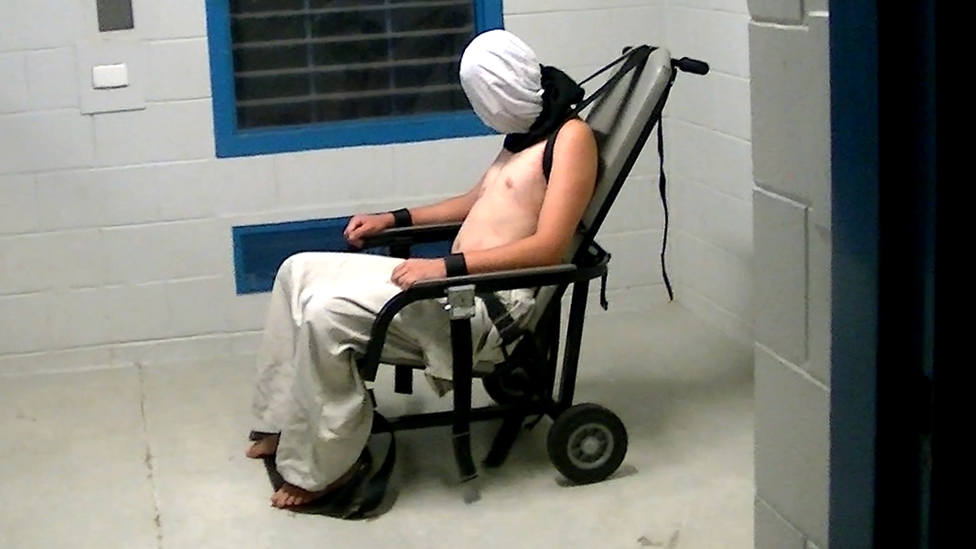
Hooded and half-naked, 17-year-old Dylan Voller, a white boy, is shackled to a mechanical restraint chair by guards at a prison in Alice Springs, his wrists bound by straps, along with his ankles and neck.
But this is only one scene in a terrible catalogue of videos shown on Australian television's Four Corners programme, providing a shocking insight into the treatment of children, many of them Aboriginal, behind bars in one of the wealthiest countries in the world.
In another video, a group of boys is seen to be repeatedly tear-gassed in an isolation unit at a detention centre in the northern city of Darwin.
But to the authorities in the Northern Territory, much of what was broadcast wasn't new. Systematic abuse was exposed by the press last year, while a government-commissioned report had earlier detailed violence against teenage Aboriginal detainees, including tear-gassing.
The evidence didn't stop there. In January, the former president of the Northern Territory Bar Association highlighted the use of hoods, shackling and prolonged periods of solitary confinement on young indigenous prisoners.
Untangling the scandal is now up to a Royal Commission hurriedly set up in the Northern Territory's juvenile justice system, which has broad powers of investigation and is expected to start work early next month.
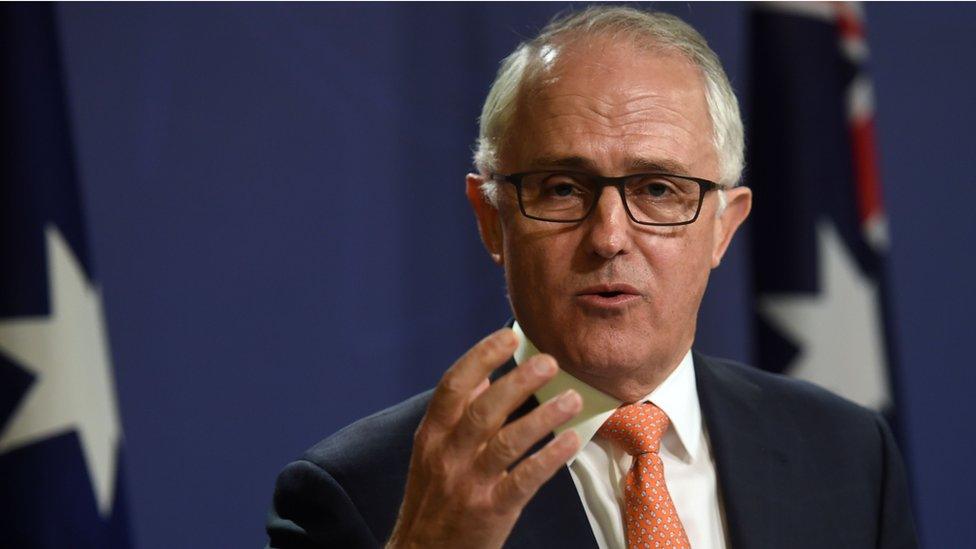
Australia's Prime Minister Malcolm Turnbull wants the report into the scandal to be published in early 2017
"Like all Australians, we are shocked by that evidence that was shown on Four Corners. Deeply shocked. We have moved swiftly to get to the bottom of it… with the aim of producing a report setting out all of the facts early next year," said the Prime Minister Malcolm Turnbull.
The Northern Territory covers an area greater than France and Spain put together, with a population of 244,000, which is about the same as Wolverhampton. It has a large First Nation community and more than 90% of its juvenile inmates are indigenous.
In 2013, Adam Giles became Chief Minister, the first Aboriginal Australian to lead a state or territory government.
He has blamed the abuse aired by the Australian Broadcasting Corporation on "a culture of cover-up" within the Corrections Department.
"There are some things that we were aware of and there's some things that we weren't. The incident around children being gassed most definitely we were aware of at the time. But the incidents around children being struck or demonised and thrown down, I wasn't aware of that," said Mr Giles.
Within days of being appointed to lead the inquiry, Brian Martin, a former judge who presided over the Peter Falconio backpacker murder trial in 2005, resigned because of criticism from Aboriginal leaders. They said he was too close to the Northern Territory's judicial and political establishment.
Martin quit, stressing that his independence and integrity remained intact despite the deluge of opposition to his appointment.
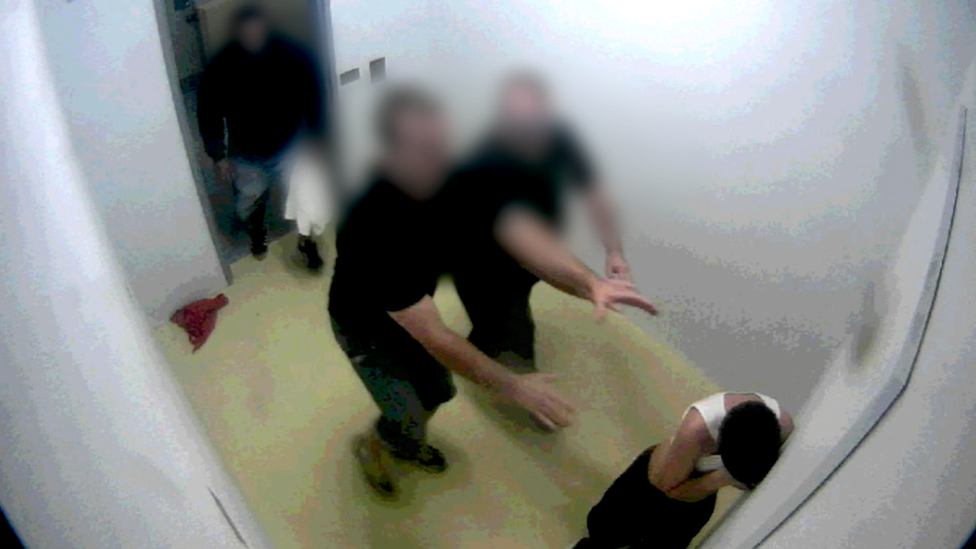
A youth detainee being forcibly stripped by prison guards
The Royal Commission will now be jointly run by a high-profile indigenous figure Mick Gooda and Margaret White, the first woman to be made a Supreme Court judge in the state of Queensland.
The new-look team of co-commissioners has not convinced some indigenous elders that the inquiry will lead to meaningful change.
"They call themselves agents of the Crown. I call them agents of the crime. You cannot sit in judgement on your own crimes," veteran campaigner Jenny Munro told the BBC.
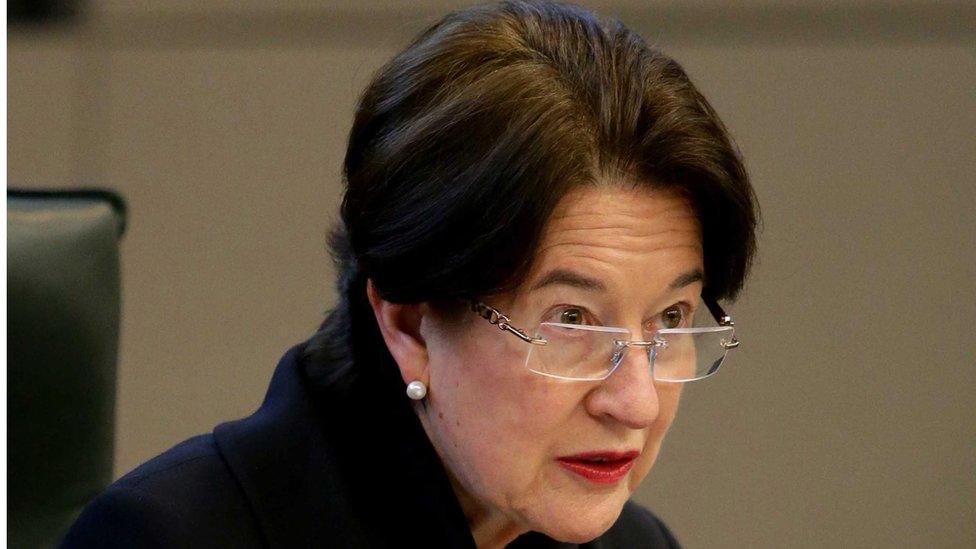
A former Queensland Supreme Court judge, Margaret White, will co-chair the Royal Commission
"This Royal Commission will be another farce, another whitewash. I can probably even tell you the scenario.
"They (the prison guards) will be exonerated, they'll be promoted within the corrections system and they'll probably even get a medal for it after a while. That is how they reward the white institutions for their torture of our people and that's how they'll continue to do it."
Much of this suspicion has its roots in a 1991 Royal Commission report into Aboriginal Deaths in Custody. It made 339 recommendations, yet few were implemented. Among them was a view that imprisonment should be used as a last resort, but the number of indigenous people in jail continues to grow and hundreds have died behind bars in the last quarter of a century.
The statistics are grim; indigenous Australians are 13 times more likely to go to prison than their non-Aboriginal counterparts. It is undoubtedly a spiralling crisis, one that has stubbornly been beyond the efforts of legions of mostly well-intentioned politicians and officials.
Ms Munro thinks she knows why - because the system is inherently racist and stacked against Australia's original inhabitants.
"Justice for our people just doesn't happen in this country. We know that," she said.
- Published30 July 2016
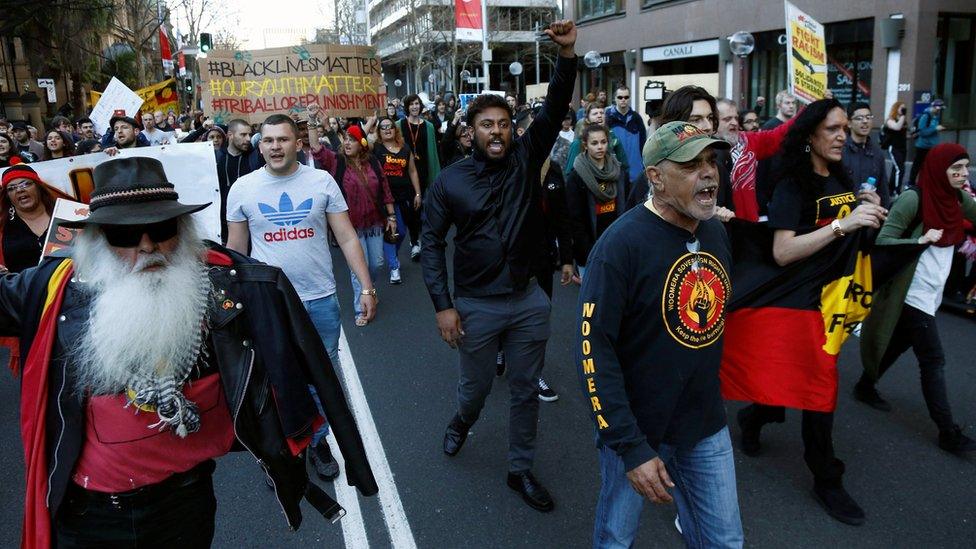
- Published27 July 2016
